Travel | Africa
27 Mistakes to Avoid When Traveling in Morocco And how to plan around them
July 28, 2020
So you've seen the gorgeous pictures of riads and souks on Instagram. You've heard tales of riding camelback over sand dunes and drinking mint tea around a campfire under a sky full of stars. Visions of painted pottery, hand-woven rugs, and ceramic tagines are swirling in your head. You're ready to head to Morocco.

I was right there with you. I did as much research as I could to prepare myself. Because of my research, I did avoid many of the common mistakes. But if I could do it all over again, there are also many things I'd do differently. Here's the advice I'd offer my friends if they were planning a trip to Morocco:
1. Don't trust every friendly Moroccan
I love meeting and talking with locals when I travel. But in Morocco, unfortunately, many of the people who offer to help you are not doing it out of the kindness of their hearts. I found this to be most true in the large cities and tourist destinations (like Merzouga). In the small towns, this was not so much of a problem. I also didn't run into this as much in Chefchaoen.
In Fes, one of the tourist attractions that's highlighted in all the guidebooks is the Chouara Tannery. What I didn't realize is that to see the tannery, you have to enter one of several private leather goods shops that surround the tannery. I'm vegan, so I wasn't super excited about seeing dead animal skins, but when it was offered, I told myself that I should at least see it to experience the culture and history. However, I soon realized that we were entering a private shop and using their balcony to look down at the tannery. They started trying to sell us their leather goods (which I obviously had no intention of buying), so I decided it was time to leave. They got quite angry at us for coming in and not buying anything, and we basically had to run out of the store because they were chasing us, insisting that we were required to buy at least one thing.

Another type of person you'll run into is the one who wants to poach you from the riad you're staying at. We weren't staying at any pricey riads. In Fes, the riad we stayed at (Dar Anebar) was around $45 USD/night. But occasionally, a young man would be waiting outside the riad, knowing how much the guests inside were paying, and trying to get them to stay at his house for half the price. These men offered to include home-cooked meals (cooked by their mothers) and everything. Something similar also happened in Merzouga, where men tried to convince us to cancel our pre-booked desert camp and take their tour instead.
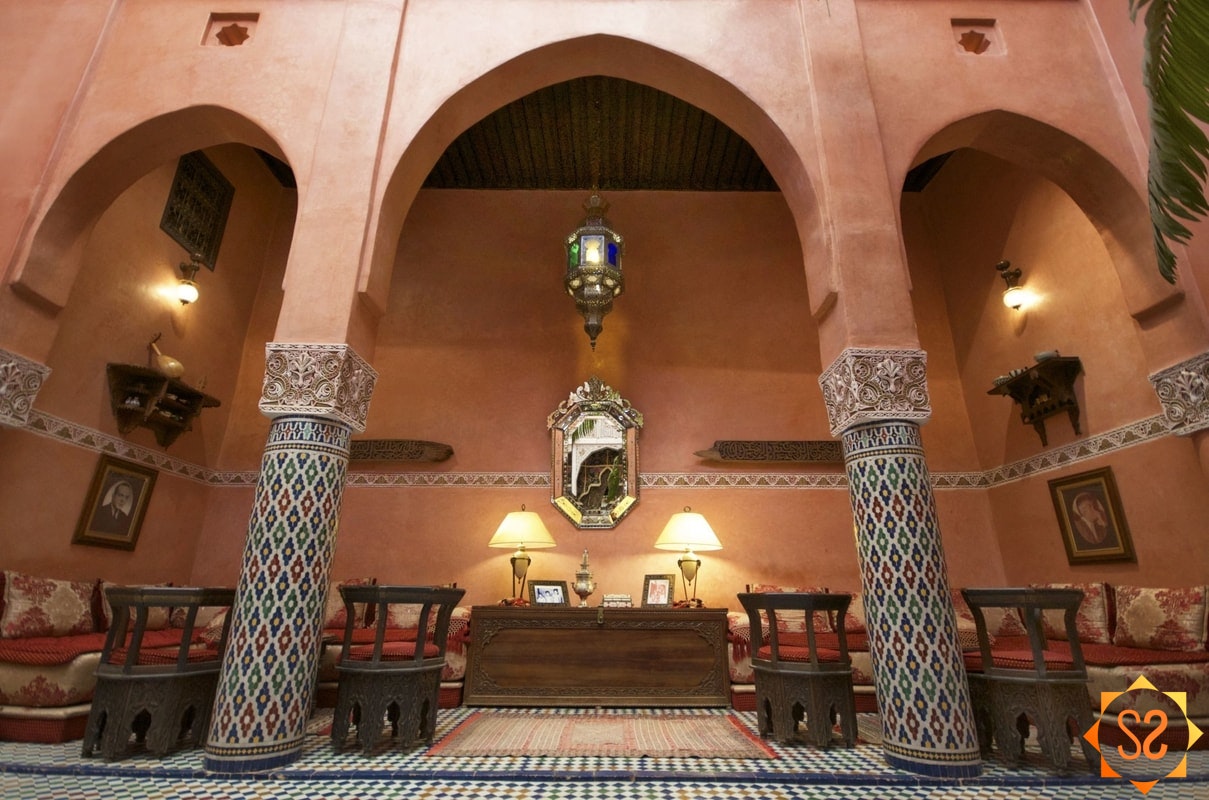
The best-known scam is probably the person offering directions. They're particularly hard to get rid of, because they will ask you where you're going, and if you answer them, they'll tell you you're going the wrong way. If you tell them you're just exploring, they'll tell you that you can't go that way, it's closed. Or they will just offer to walk with you. One thing that I found that worked sometimes was to tell them, "I don't have any money and I can't pay you."
In Marrakesh, we did end up asking one of these people to show us the way to our riad, because it was not where the GPS said it was supposed to be and we were absolutely lost. I knew he'd expect a tip for showing us the way. I was okay with that because we were truly lost. The riad was just around the corner, and I tipped him according to what I believed to be appropriate based on my research (20 DH / $2 USD). He was insulted and said I was offering him "child money." He wouldn't take it. I apologized and asked him how much he wanted, but he refused to tell me how much he actually wanted. The riad staff tried to ask him the same, but he still wouldn't answer. So they scolded him and told him to go away. However, he hung around outside our riad during our entire stay in Marrakesh and followed us every time we left the riad, demanding that we pay him.
2. Don't go solo
(And don't go with the wrong person). It's not that anything bad will happen to you if you do go solo. But traveling in Morocco is a lot to deal with. Trying to communicate in another language; navigating roads that are mostly filled with pedestrians and donkeys; depending on a GPS that is often wrong or hard to follow; fending off people who want to sell you something, or carry your luggage (for a fee). Doing all this on your own can be exhausting, and it's important to have a travel partner who you can trust to help you.

The person I traveled with didn't study any of the languages spoken in Morocco, so most of the communication was on me. He couldn't drive a manual transmission vehicle (and forgot his driver's license at home), so the driving was on me. The GPS didn't have turn by turn directions, only a map overview, and he couldn't read it, so he'd tell me to turn left when I should have turned right. I ended up having to read the GPS myself and trying to drive at the same time. And his way of telling people "no" was to get aggressive with them, leaving me constantly trying to deescalate.
My experience could have been so much nicer if I had a travel partner who I could trust and depend on. Don't plan a trip to Morocco without one!
3. Don't try to drive yourself
I love the freedom of having a car on vacation. I can go wherever I want without worrying about finding a taxi and wondering how much that's going to cost. I only rented a car for a little over half of the entire trip. But if I were to return to Morocco, I'd rely only on taxis for short drives, and hire a driver or take a tourist bus for long trips.
Parking is a very different thing in Morocco, and it varies from city to city. In some places, your riad or hotel may provide you with free parking. But in most big cities, you're going to have to park on the street, outside the medina walls, and walk to your riad. There are typically young men who "watch" certain areas of the street, and you will pay them to park in their area.
In Chefchaoen, one of those men directed us to park next to a building that was undergoing some construction and our rental car was (slightly) damaged by some falling debris. Then, when I came back and parked in the same spot on another day, I paid a different man. I didn't see the original man, and I assumed they were working together and taking shifts. A few minutes later, however, the first man came to ask for payment. I explained that I'd paid that other guy over there, and the first man told me the other guy was a liar and I wasn't supposed to pay him. He didn't blame me for the situation, and I didn't have to pay twice, but they got into a pretty big argument over it.
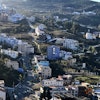
As I touched on already, the GPS is also hard to follow (this might vary for you depending on your device). Instead of turn-by-turn directions, Google Maps turns into a stationary map with North at the top of the screen. So if you're heading South, it can be disorienting to look at the map "upside down."
On top of that, the directions aren't always accurate. When we drove to Talassemtane National Park from Chefchaoen, Google Maps tried to take us up a grassy dirt road on the side of a mountain that wasn't wide enough for our car (there was a wall of rock on one side, and a cliff with no guardrails on the other). We had to turn around and head a different direction based on nothing but a guess. Fortunately, we did end up getting there, but the GPS didn't re-route us for a long time (it kept telling us to turn around and go back to the unpassable road). So for half the trip, I had no idea whether we were even going the right way.
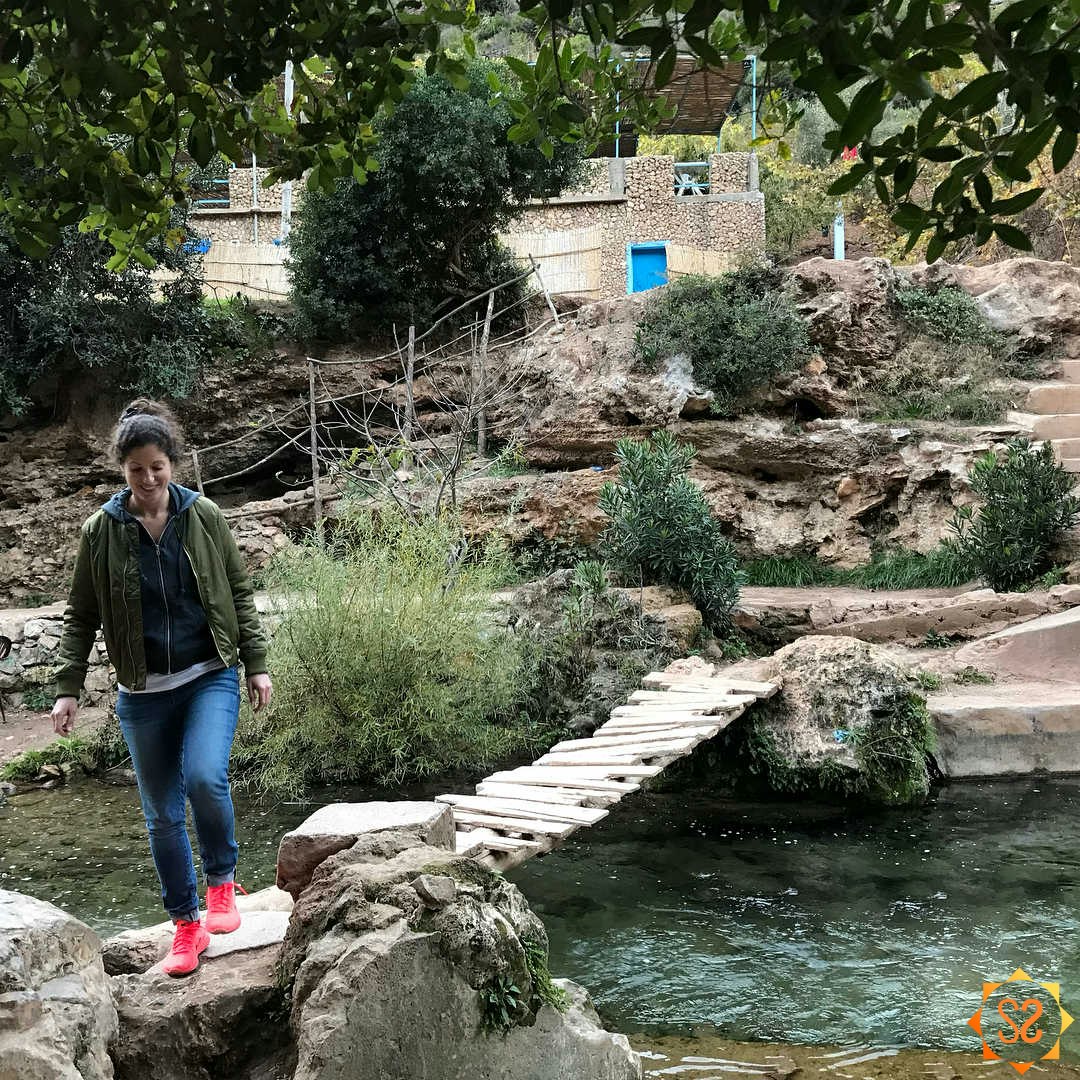
The rules of the road are different in Morocco. And they're not consistent from one city to the next. As soon as I had figured out how the traffic circles worked in Fes, I found them to be very different in Marrakesh. And when you're entering and leaving different cities, there are police checkpoints. I was pulled over at a few of them, and I'm still not sure what was the reason was. They just looked in the car, asked us some questions, and then let us go.
Within the cities, the roads are filled with people and donkeys, and you've got to be constantly on alert to make sure you don't hit anyone. In some places, cars are so uncommon that kids will walk up to your car (or in front of it) and beg for money because they assume you must have money if you're driving a car. Outside of the cities, most of the roads are unpaved. We had a basic economy car and many times I wondered whether the car would make it over certain roads. It's a lot of unnecessary stress to add to a vacation.
When you're taking long drives (from Merzouga to Marrakesh, for example), the drive will take longer than you think. The roads aren't like the roads in the United States. Most of the roads between cities only have one lane in each direction, and some are not paved. Many times we got caught behind a truck going 20 or 30 miles an hour up a mountain. We couldn't pass the truck because the road was so curved that we couldn't see if anyone was coming in the other direction. We would end up traveling behind these trucks for 30 minutes or longer before we were able to pass them. When Google Maps says that your trip will take 5 hours, plan for at least 8, and plan to arrive tired.
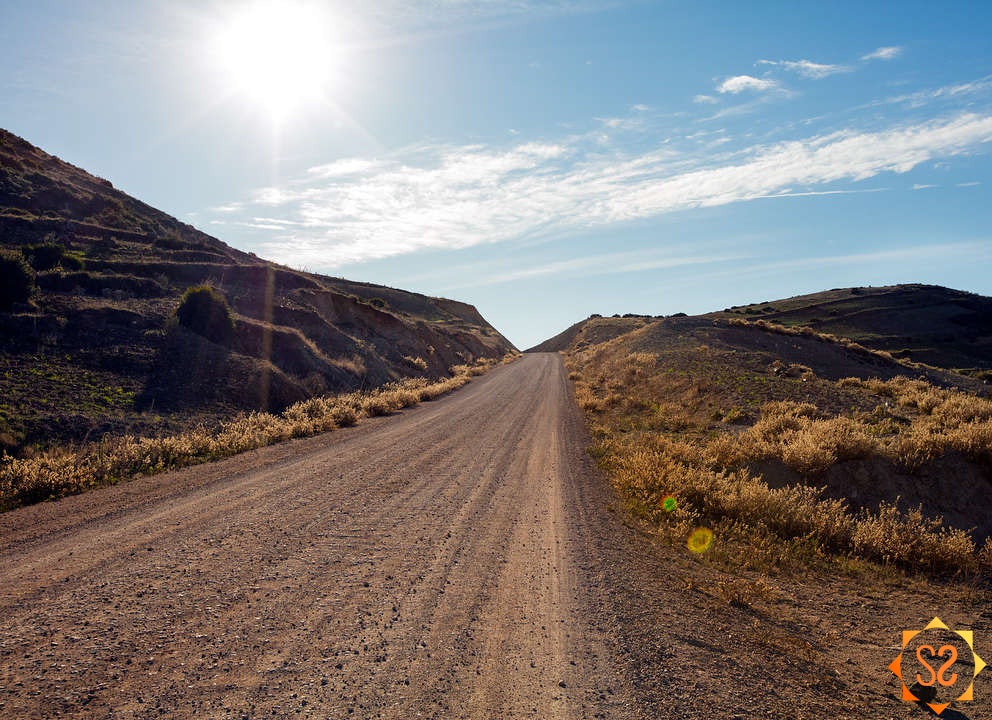
I don't know if reading all of this stressed you out, but every single one of these stresses could be avoided by taking a taxi or tourist bus, or by just hiring a driver for the day. Drivers know their country better than we do and they know where to park and how to navigate their streets. Letting someone else do the driving takes all that stress off your shoulders so you can focus on the things you want to see and do in Morocco.
4. Don't get in a taxi before you know the price
Make sure you do some research to know how much a taxi ride should cost in the city you're visiting. And don't get into any taxi before they tell you a price that's reasonable. There aren't set rates in Morocco, and you don't want to arrive at your destination only to find out you're being charged three times the going rate. You should also tip your taxi driver. Usually, that means rounding up the fare.
5. Don't book hotels and riads in advance in the off-season
(Unless you're dead set on a particular riad that you just have to get those Instagram photos at).
We traveled through Morocco at the end of November, and I planned and booked everything before we left. When I got there, I realized that most of the places I'd reserved were almost empty, and the last-minute prices had dropped by 20-40% from what I'd reserved them at in advance. I could have canceled without a fee and rebooked the reservations, but most of the places we stayed were family businesses and I would have felt bad. I know how it is to have a business and expect a certain amount of income from a sale or job, only to have it cut in half. But if I'd waited to book, I could have had almost the same selection at a fraction of the price. I also would have had more flexibility to stay more days when I liked a particular city, or leave earlier when I didn't. Of course, it may have also added more stress to the trip to try to figure out where to stay at the last minute.
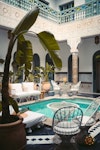
What I would do in advance is research several accommodation options in each city you plan to visit. Read all the reviews while you're still in trip planning mode, and know which ones are good and which ones to avoid. This is especially true if you're planning to book a desert tour. Don't just go with the tour that's offered to you at your riad. Do your research. Some desert camping trips don't actually take you to the Sahara. And I've read some stories of others with even worse experiences. It's also important to me that the tour guides I support care for their camels, so I looked for that information in the reviews.
6. Don't skip getting a Moroccan SIM card for your phone
They're super cheap; you can get enough data for your whole trip for under $10 USD. It helps to be able to look things up on the fly. You can also book your last-minute riad reservations for the best price, and avoid in-person haggling.
You won't be able to use the SIM card unless your phone is unlocked. My carrier (T-Mobile) unlocked my phone when I told them I was going out of the country. Some carriers might not, especially if your phone's not paid off. If you can't get your phone unlocked, it might make sense to buy a cheap unlocked smartphone, or a used one on eBay.
7. Don't wander without a guide
One thing I love about traveling is exploring a new place freely, and I approached Morocco with the same attitude. We were traveling on a budget, and I didn't want to spend any unnecessary money on travel guides. However, in Fes, a young man offered to show us around, and assured us he didn't expect any money. He never did ask for money after walking with us for half a day, but we of course paid him anyway.
As soon as we had a local person with us, no one tried to stop us and sell us anything. I know that might not seem like a big deal; people try to sell me things in the US all the time and I just keep walking. However in Morocco, if you look even slightly lost, one of the "friendly" people I mentioned previously will immediately be stuck to your side. You can tell them no, but they will follow you. It can be really difficult to get rid of these people, and over time, it can take away from the enjoyment of the trip.
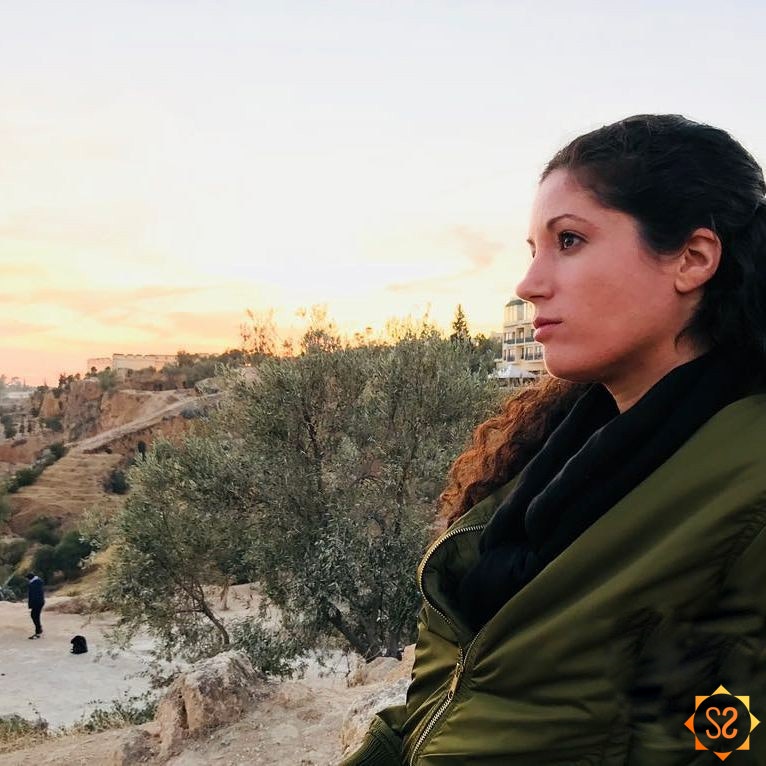
As a side note, unemployment is very high in Morocco among young people, so many have to resort to these tactics to make ends meet. While it can be a stressful experience as a tourist, their situation is even more difficult.
One downside to having a guide is that they'll take you to all the places that they think most tourists want to see. Maybe that's not a downside for you. But if you want to explore freely, try to find a guide who will just walk with you, and maybe point out places of interest along the way, or help with communication.
8. Don't photograph others without permission
This is something that you probably already know if you've done some research. Many photographers and videographers have come to Morocco and made a lot of money with the photos and films they produced. It's a common belief in Morocco that everyone who has a DSLR camera is being paid lots of money to take photos of them or their children, while they themselves struggle to survive. They feel they should be compensated for having their face in a photo or video. So they will take great offense if you take a photo of them without their permission. Children are taught to say "no!" as soon as they see anyone with a camera, even if it's not directly pointed at them.
Another thing to note is that carrying a DSLR camera attracts attention to you as a tourist. People will not only assume you're a tourist, but that you're a tourist with money. So the number of sales pitches will increase when you're carrying a big camera around. When I carried a GoPro instead, I found that it attracted no attention at all because it's so small. Of course, it's not the best for photos, but the stabilization on the GoPro is great for taking videos while walking.

9. Don't rely on credit cards
Morocco is a mostly-cash country. There are a few places that you'll be able to use your credit card, but as I learned, it's best not to expect that to be the case. We knew in advance that we'd need cash for food, gas, certain riads, entry to attractions, and for spending money. We planned on using credit cards for the rental car, and for some riads that accepted credit cards. However, in Marrakesh, the owner of the riad we stayed at couldn't get her credit card system to work. They had Paypal, so I tried to send her the money that way. But Paypal wouldn't let me log in to my account because a login attempt from Morocco looked suspicious to them. Fortunately, the owners decided to trust us to send the money to them after we returned to the US, so it didn't become as big of an issue as it could have been.
10. Watch out for fake items
Morocco's economy is heavily reliant on tourism. And many vendors cut corners to offer cheap products to tourists. You will find fake argan oil, fake saffron, fake fossils, and low-quality rugs, lanterns, clothing, and ceramics. If you plan to buy any of these items, do some research ahead of time to learn how to discern the genuine items from the cheap replicas.
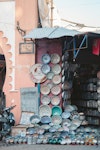
11. Don't forget small change
This one can cost you a lot of extra money. You will find that there aren't a lot of opportunities to get coins and small bills, so when you can, get as much as you can. You won't be offered change when you're paying for tips, for taxi rides, or for using public bathrooms (yes, you need to pay to use them in many places). Even if the taxi driver has change, he'll tell you he doesn't. And you'll end up paying $10 for a $4 taxi ride just because you didn't have smaller bills.

12. Don't bring just one device
Okay, this one might sound a little crazy. Who wants to travel with a ton of devices? Well, you do, if your primary device stops working. This might be applicable to traveling anywhere, but my phone happened to decide to shut down forever while I was in Morocco, leaving me completely device-less, and so I'm putting it here in this list.
When I was in Morocco, I used my phone for a lot of things. As a camera, as a GPS (even when walking), as a translator when I couldn't remember a particular word. In my previously mentioned Paypal story, I had to log on to Paypal from a device that wasn't my own, and Paypal was trying to verify my identity through my phone. My cold, dead phone. Not having a second phone, or tablet, or something that was already recognized, made the trip harder than it had to be.
13. Don't bring a drone
Just in case you weren't aware, drones aren't allowed in Morocco unless you have special permission. If you bring anything resembling a camera case, they will check all of your luggage to make sure there's no drone. My travel partner had left some of his spare drone propellers in his camera bag, and they pulled everything out of his suitcase to make sure he wasn't hiding the actual drone in there.
14. Don't forget plug adapters
This might be an obvious one, but the electrical outlets in Morocco are not the same as the American outlets. You may find type C or type E outlets in Morocco, so bring multiple adapters for both types. You'll spend most of your day using your devices outside your riad, and at night you may need to charge your phones, cameras, and laptops at the same time.

You should also check the voltage on your electronics before you bring them. The chargers for most devices are dual voltage, but some bathroom appliances like men's hair clippers or Waterpiks are single voltage and won't work in Morocco. The voltage in Morocco is 220V.
15. Don't skip signing up for a VPN
A one-month VPN subscription is super cheap, and can make your device appear to be in your home country while you're in Morocco. If you ever need to sign into any bank accounts, credit card accounts, or even email accounts, you can avoid difficulties by getting a VPN. It will also protect your information from hackers when you're on a Wifi network that's not yours. A VPN would have of course saved me from my Paypal ordeal, so I wish I would have known about them before I went!
16. Don't expect everyone to speak English
I would 10,000% recommend spending a few months learning some basic French before you leave for Morocco. Moroccans usually speak at least two languages, Darija (a blend of Arabic, the native Berber language, French, and Spanish), and French. Most language apps and software don't teach Darija, so French is the most accessible language to learn that will be understood universally in Morocco. In Chefchaouen and the northern parts of Morocco, Spanish is also widely understood, so if you're only traveling in the north, Spanish might be a good language to study instead.
I've seen some people recommending that travelers learn Arabic. But from what I understand, even native Arabic speakers have a hard time communicating in Morocco because the language is so different from standard Arabic. So I wouldn't spend much time trying to learn it, aside from a few basic words like "salaam."
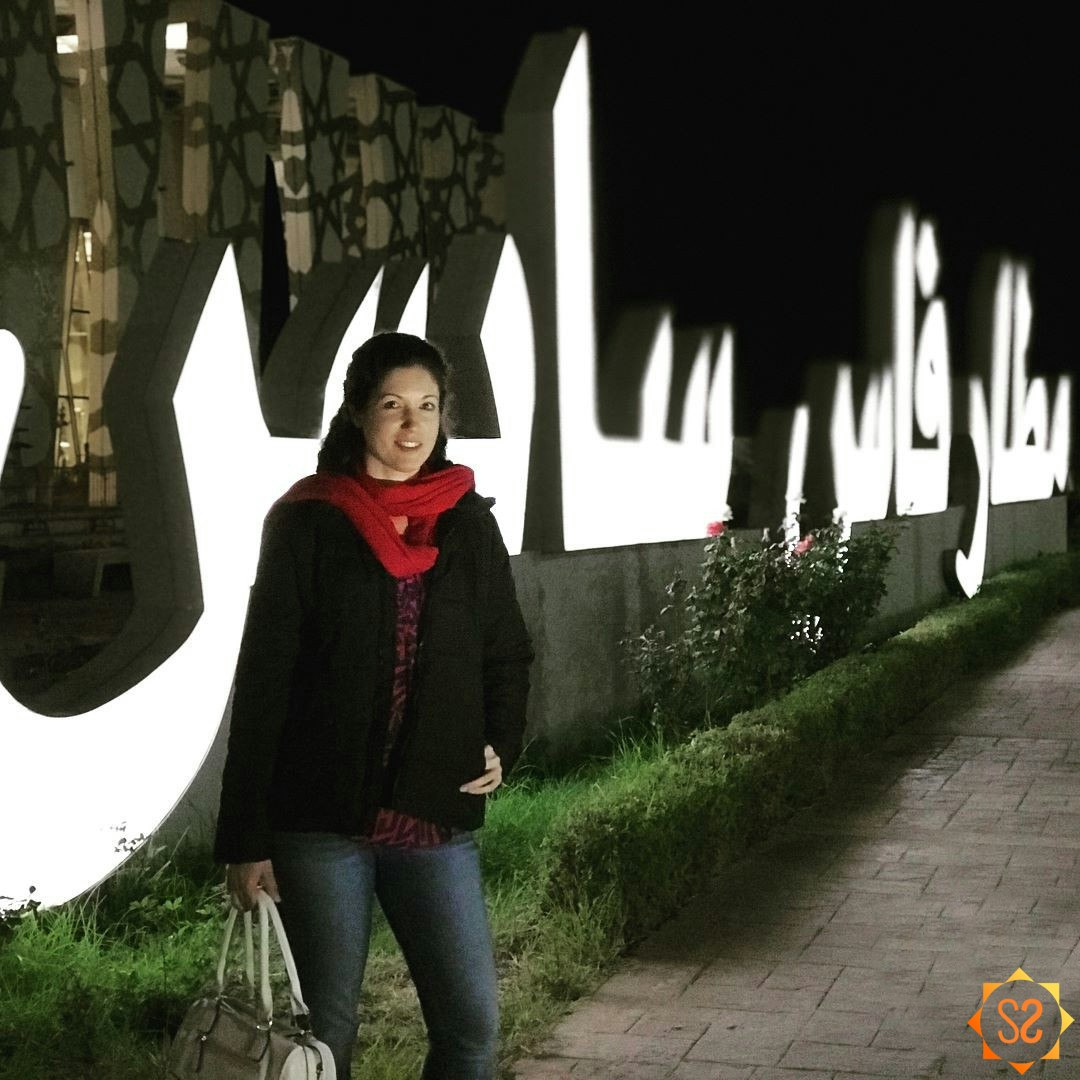
You will find that most of the young people in Morocco do speak English, and most owners and employees in the riads do as well. I met many people who speak 5 or 6 languages because they host tourists from all over. Young people often know English, Spanish, and German in addition to their native languages. I found myself needing to use French most often with taxi drivers, shop owners, and restaurant staff.
17. Don't forget to budget for tips
Tips are expected in Morocco for even the smallest amount of help. You will need to tip people many times each day. It might only be a couple US dollars each time, but it can add up.
18. Watch what you plan for on Fridays
In most of Morocco, things shut down on Fridays because it's the holy day for Muslims. You will find that some restaurants that cater to tourists remain open, but most of the shops close. So plan your activities around that. You may want to go hiking and take in the scenery. But I also found it to be a perfect time to explore the medinas, while most of the locals are at home. It's quiet in the medina, and there aren't many people following you around trying to offer you directions. You can also take photos without worrying about inadvertently photographing someone who doesn't want to be photographed.

19. Don't get major healthcare in Morocco
This is something I wasn't aware of before I traveled. Fortunately, it never became an issue for me. But by talking to both locals and expats, I learned that healthcare in Morocco is pretty bad. Locals told me that if you had a broken bone, the doctors there would probably make it worse. If you have a cavity, you may as well just pull out your tooth. Some American exchange students I spoke to mentioned that their friend had gotten very sick and had to be flown by helicopter to Europe for surgery. It wasn't safe to have the surgery done in Morocco.
Hopefully you don't have any medical emergencies while in Morocco, but in case you do, have a plan in place to leave the country. Travel insurance usually offers coverage for transporting you out of the country for medical care.
20. Don't skip the desert
I wondered whether going to the desert was actually worth it. To reach the desert takes two days of traveling each way from the major cities in Morocco. I like to be comfortable and warm. It was November when I visited Morocco, and it was cold at night. And I usually like to have "local" experiences and skip the things that are overly touristic. I can tell you now, it was worth it.
Camping among the sand dunes was absolutely a highlight of our trip. Our guide Youssef had been a nomad for most of his life, and "Bob Marley" had been his camel for many years. We had dinner, mint tea, and gathered around a campfire to sing and drum. Yes, it was cold. It was cloudy, too, so we thought we might not see the stars. But Youssef encouraged us to wait, and eventually, the clouds passed. The stars were the most brilliant I've ever seen in my life. There were so many of them that they turned the sky around them from black to a band of deep purple.

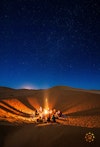
We arrived in Merzouga one day before our planned desert camping trip, because I wanted a day to relax after the long drive from Chefchaouen. For that night, I splurged on a beautiful, luxurious riad in the desert (Riad Dar Hassan). It was also one of the best decisions I made. It allowed me to rest and recharge in comfort before riding camelback to the desert camp.
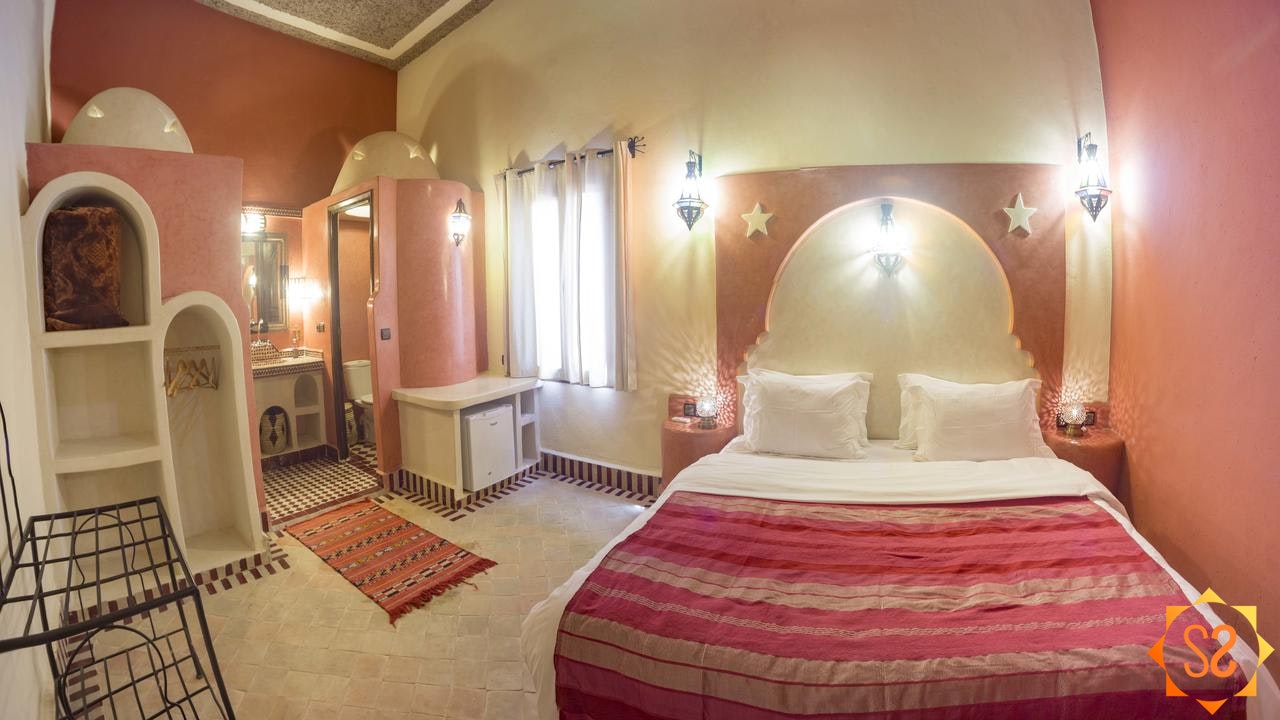
As I mentioned earlier, do your research before you decide which camp to stay at. There are some really great ones, but people have also had pretty bad experiences. Those people who have online listings are usually more motivated to provide a good experience because they want to maintain their good reviews.
21. Don't show too much skin
Morocco has a mostly Muslim population (more than 99%), and they dress on the conservative side. There is no dress code by law, and locals (especially the younger generations) will often wear jeans and t-shirts. In Marrakesh, I even saw a few girls wearing mini skirts and tank tops. However, those girls stood out among the sea of people who were more conservatively dressed. At the very least, wearing the outfits that I might not think twice about wearing at home would have gotten me unwanted attention. At worst, well, it could have been worse.
The American exchange students that we met on our trip told us about a friend of theirs who had decided to wear a tank top to visit a northern city. A random man walked up to her and licked her shoulder. Because of what she was wearing, he reasoned, she clearly wanted someone to lick her shoulder. In America, we'd be outraged by this, but remember that it's our culture that demands that outrage. When you're outside of your culture, the same rules don't apply.
Before you think this is extremely sexist, know that this doesn't just apply to women. For men, it's generally considered inappropriate to wear shorts and tank tops as well.
I brought several pairs of long pants (mostly jeans) to Morocco along with tops that covered my shoulders. I also brought several light scarves to wrap around my neck for the tops that were lower-cut than I'd have felt comfortable wearing there. I tried to observe how people were dressed in each city to determine whether I should add another layer of clothing, like a long cardigan.
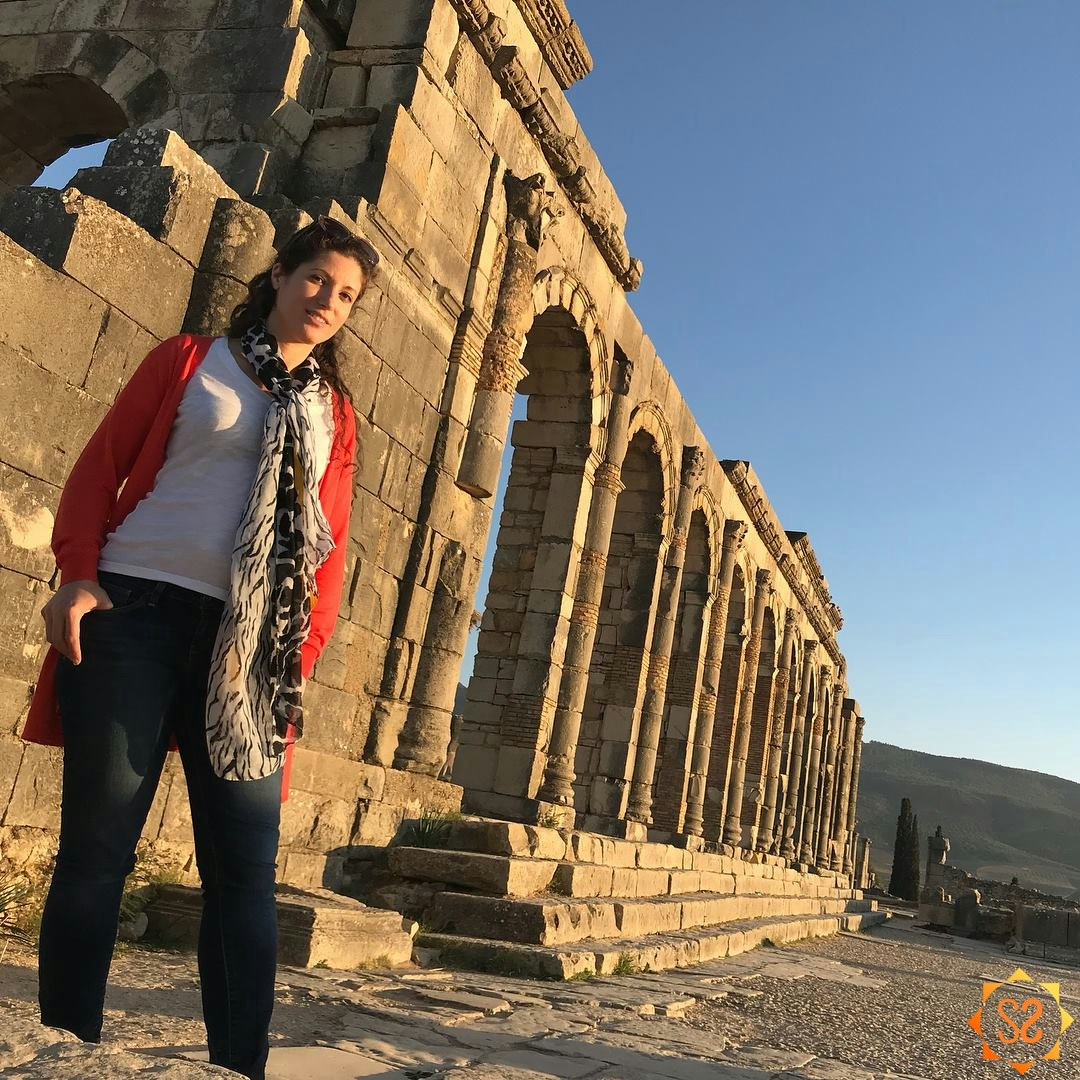
22. Don't bring uncomfortable shoes
I know you think they're going to be super cute in those IG photos. But you're going to be walking. A lot. If you get blisters the first day, even your comfortable sneakers won't be so comfortable anymore. If you're bringing new sneakers, walk around in them for a day before your trip to make sure they're as comfortable as you think they're going to be.
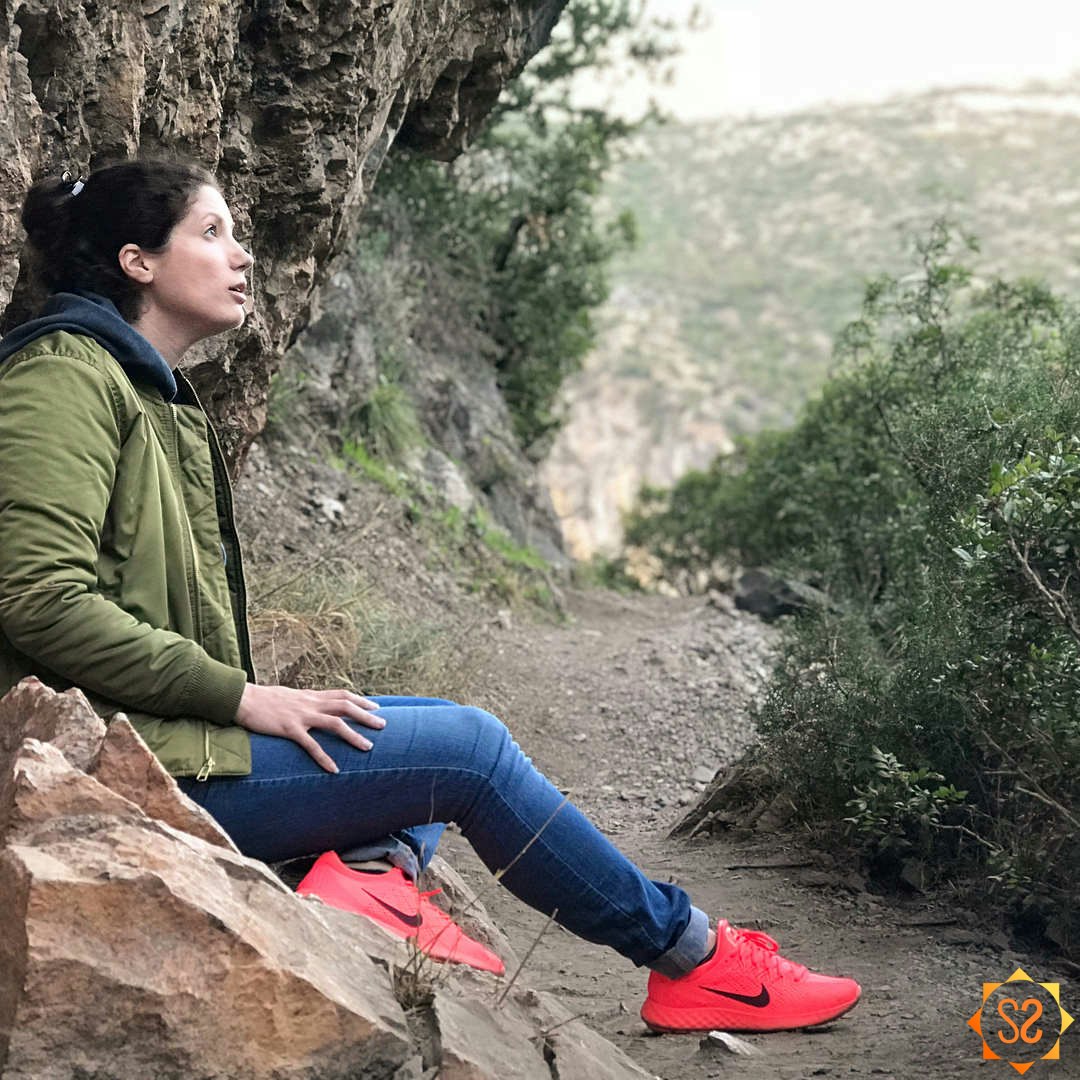
23. Don't look lost
Like I mentioned, I love to explore aimlessly. But the second you look like you don't know where you're going, you're going to get people surrounding you, offering to "help." Eventually, I learned that if I could walk confidently in a certain direction, the "salespeople" would mostly leave me alone. How I accomplished this was by using the walking GPS on my phone, and paying attention to where I was turning well before I reached the turn. I would glance at the map while walking. The second I'd stop or slow down to try to figure out which direction I was going, that's when I'd have to tell someone "no" ten times.
24. Don't support the snake charmers or monkey trainers
The animals are abused to get them to perform the way they do. Support from tourists also incentivizes people to continue taking monkeys from the wild, which has become a big problem in Morocco. I personally didn't go anywhere near any of these people, because I didn't want to give them any opportunity to toss an animal on me and expect payment. (That's a thing, from what I've heard.)
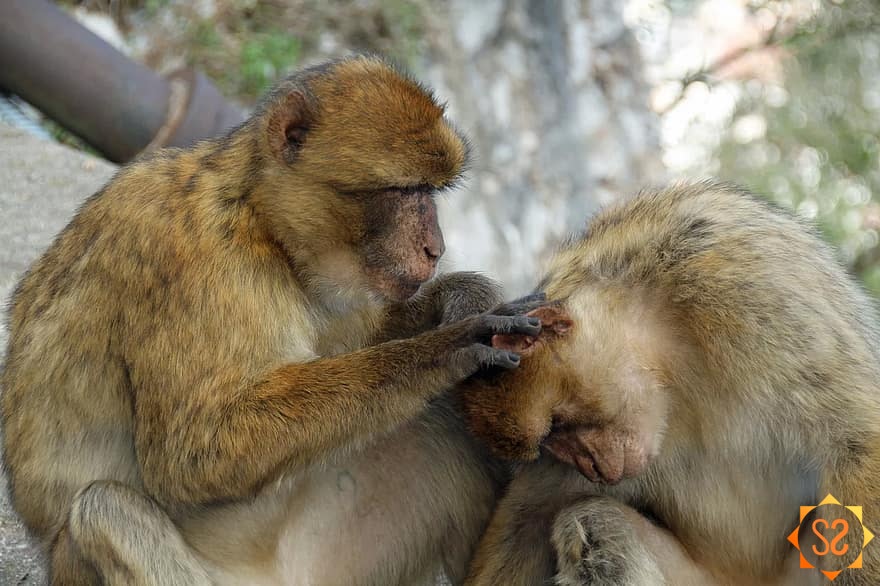
25. Don't expect Western toilets everywhere
You will find the toilets we're used to in most places that cater to tourists. Every riad I stayed at had a Western-style toilet. But if you get too far away from the tourist spots, you'll find a squat toilet, which is basically just a hole in the cement.
You may also want to bring toilet paper and wipes along with you. All the bathrooms I used had toilet paper, but they say that it's not a guarantee. So it's better to be prepared just in case.
26. Don't make rigid plans unless you have to
My plans were pretty firm, since I'd booked all my hotels in advance. As I mentioned, it turned out that I didn't need to do that. I decided how long to stay in a city based on travel guides and blogs. I decided in advance how much I expected that I'd like each city. I was most looking forward to Marrakesh, and I planned to spend the most amount of time there. As it turned out, it was too much time. I went to Marrakesh expecting a city lost in time; an authentic Moroccan experience. Instead, most of the old city seemed to be preserved just for tourism. The prices in Marrakesh were double what they were in the rest of the country. And it was really, really dusty and windy. It was hard to see and breathe because of the dust blowing in my face.
I would have liked to spend more time in Chefchaoen, and traveling through the country. I planned to spend three days in Chefchaoen because I had read that it was a really small city that you could see in a day. What I didn't plan for was getting sick (just a common cold, but it kept me in stuck in bed for two of the three days). I did get out for half a day while I was there, and it was beautiful. If I'd been more flexible with my plans, I could have stayed another day or two. Hopefully, I'll make it back there one day. Not getting to see all of Chefchaoen was one of the biggest disappointments of the trip.

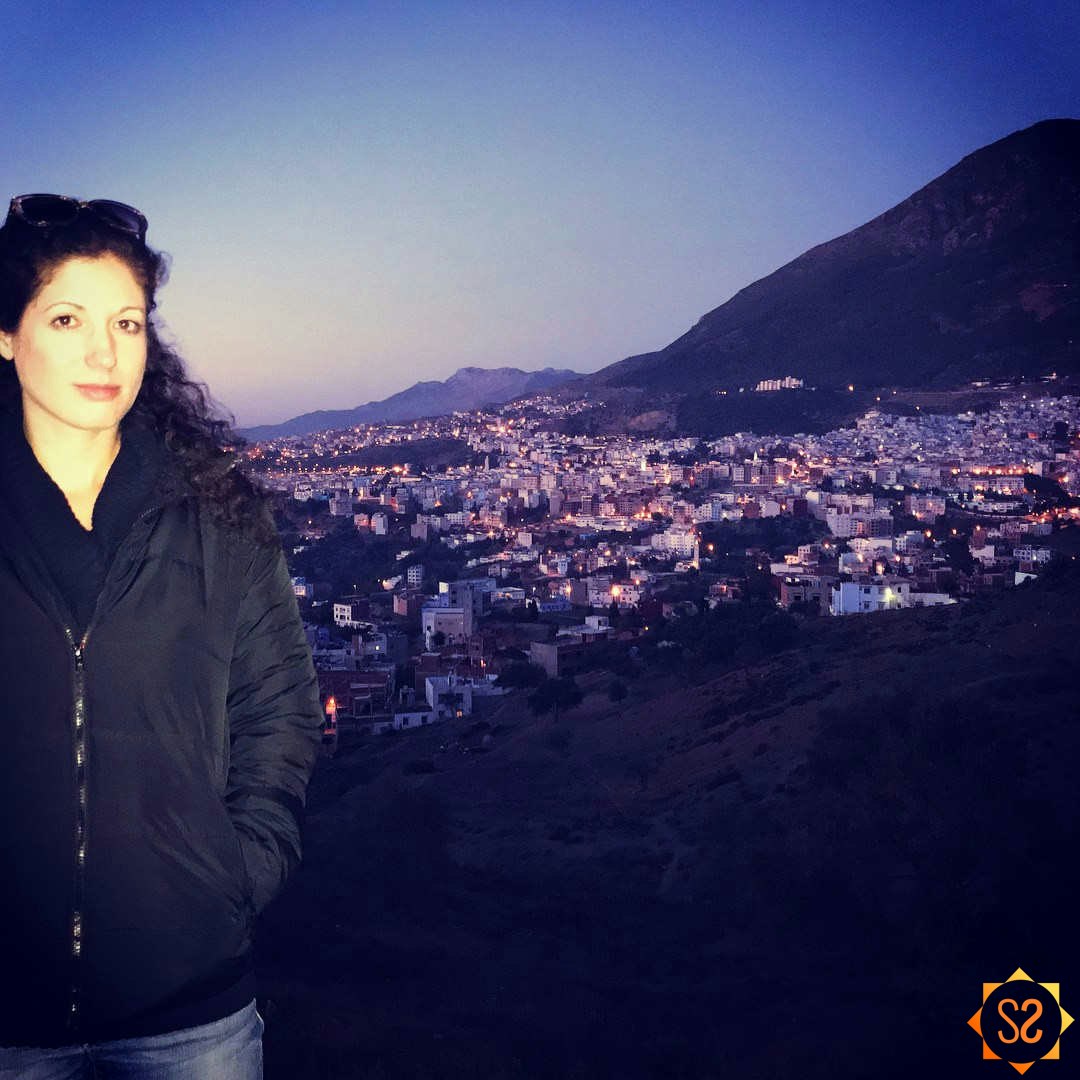
In the high season, you might need to book in advance to make sure you have a decent place to stay. But you'll find that a majority of places do offer free cancellation. If you can limit your reservations to only those riads or hotels that offer free cancellation, you'll have the flexibility to stay longer in cities you love, and leave earlier if you're not feeling it.
27. Don't skip the mountains and small towns
We passed through many small towns and rural areas on our way to and from Merzouga. The landscapes were stunning. We had to stop in the middle of nowhere to let some slow-moving camels cross the road. In the mountains, on a highway that led through the forest, monkeys played with their babies alongside the road. We saw acres of land filled with olive trees, and children using sticks to shake the olives out of the trees. In the afternoon, groups of children walked home from school, with no sign of the school they came from or the house they were going to for miles around. Every so often a small home would appear in the landscape, many times with solar panels on top.
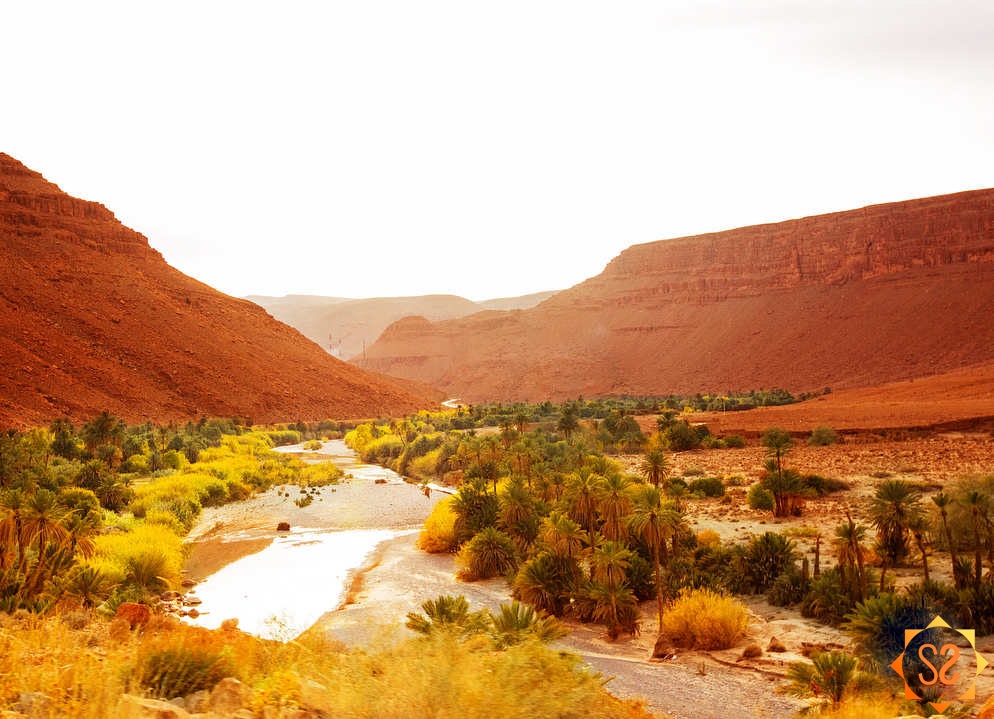
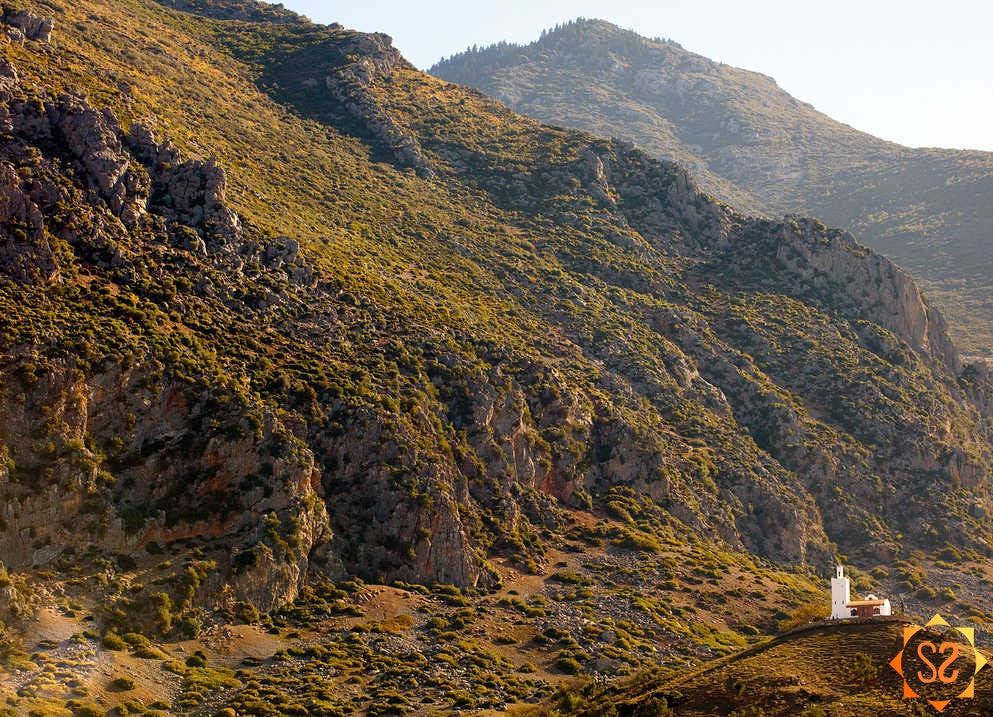
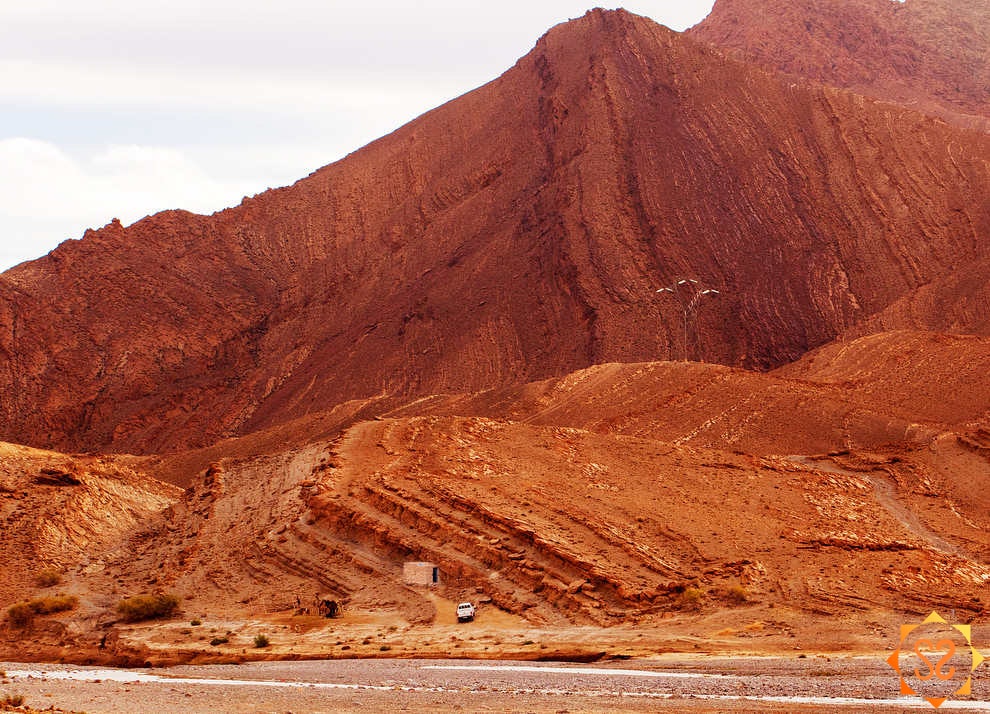
We found a roadside shop where a vendor was selling plates, rugs, and local honey and jams. In the big cities, the souks had cheaply-made items that only tourists would buy. But out here in the middle of nowhere, on the side of a mountain, this man sold his handcrafted goods. We looked around without pressure and had some mint tea with the business owner while his cats walked between our legs. I left with a beautiful ceramic plate that is now the centerpiece of my dining room table.

In the small towns, our experience was infinitely different from the large cities. No one cared that we were tourists. They were busy with their friends and their lives. The rooms we stayed in were bedrooms inside large bed-and-breakfast style homes owned by families. We shared stories with the owners and spent time playing with their dogs. It would have been ideal to allow for a few extra days exploring these areas, which we instead just passed through.
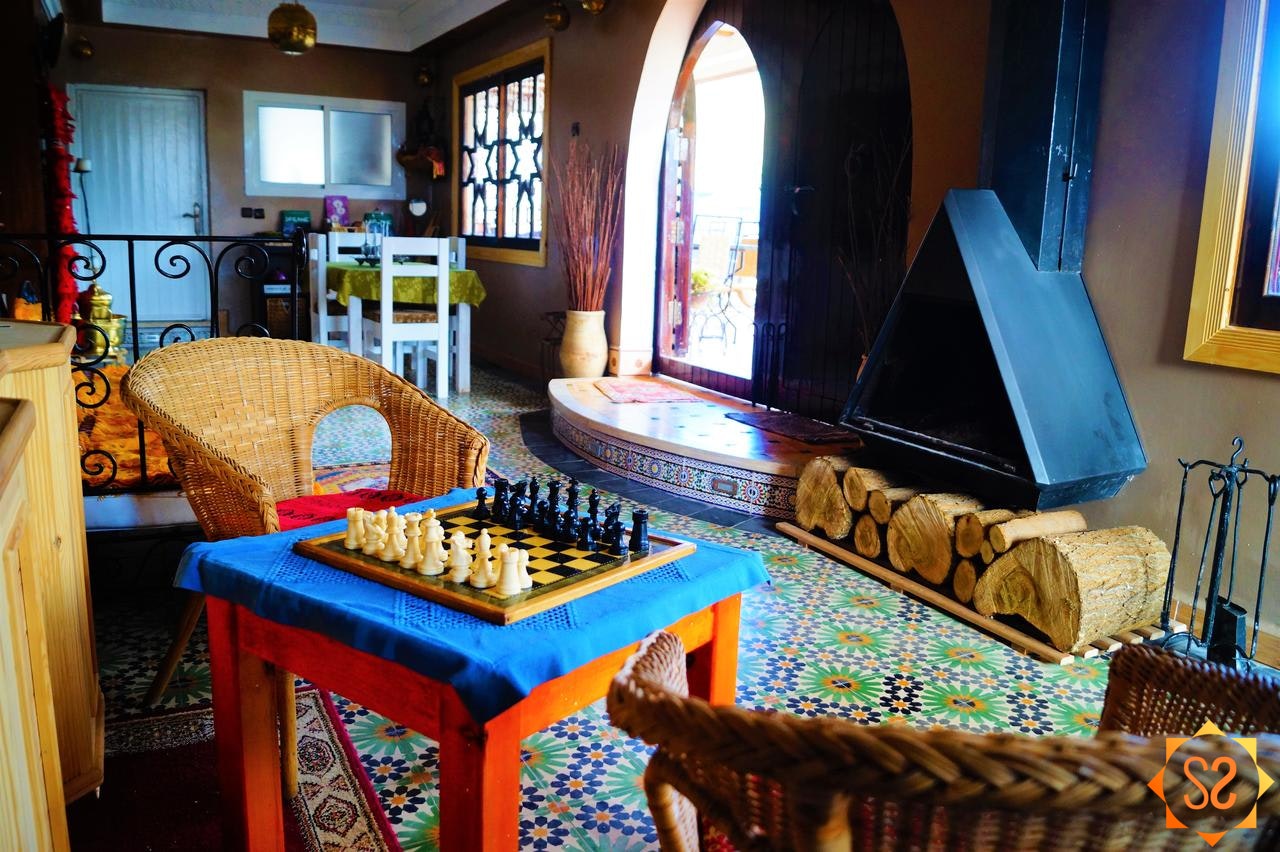
Share this:

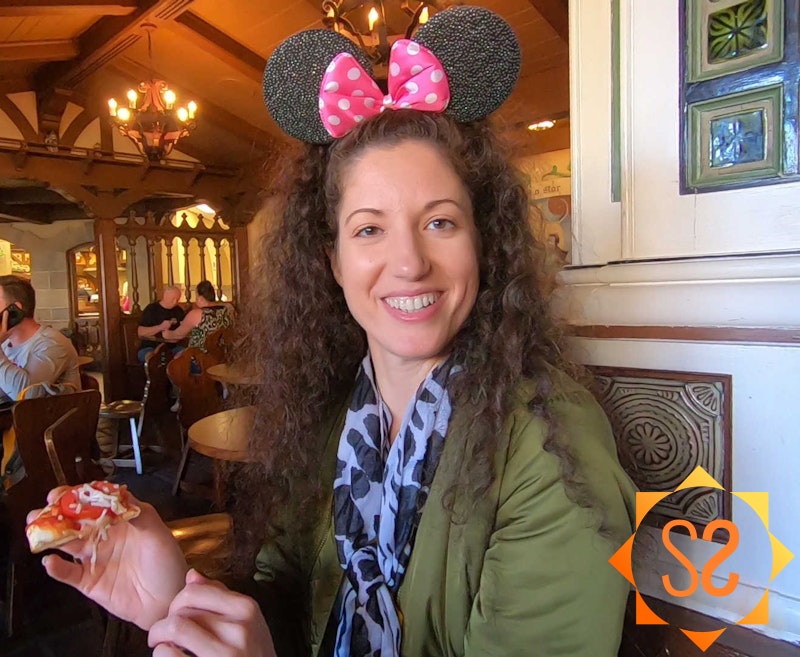
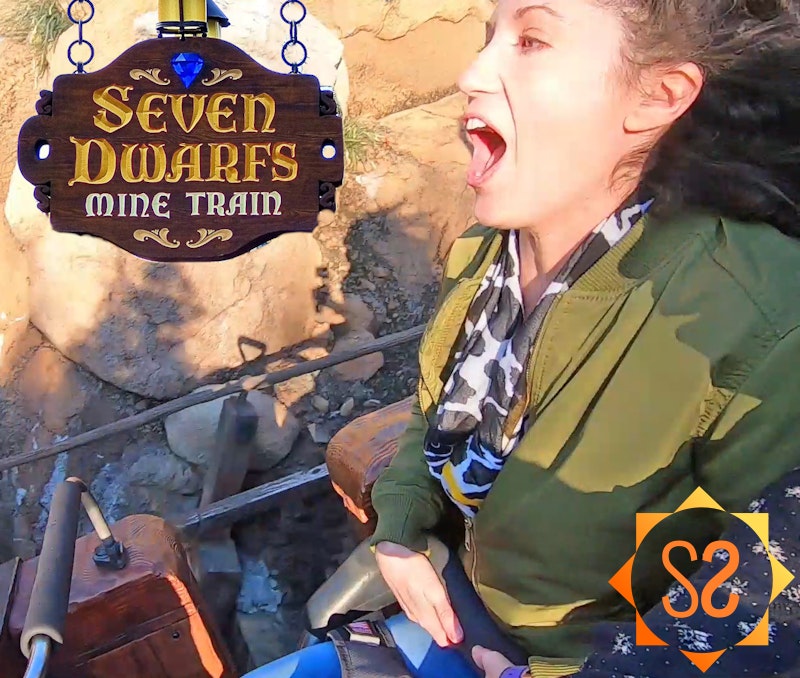













Leave a Comment
I love reading comments! I'll do my best to answer questions, too. If you made the recipe, please leave a star rating, it helps support the blog so I can make more recipes and articles. Thank you!
says